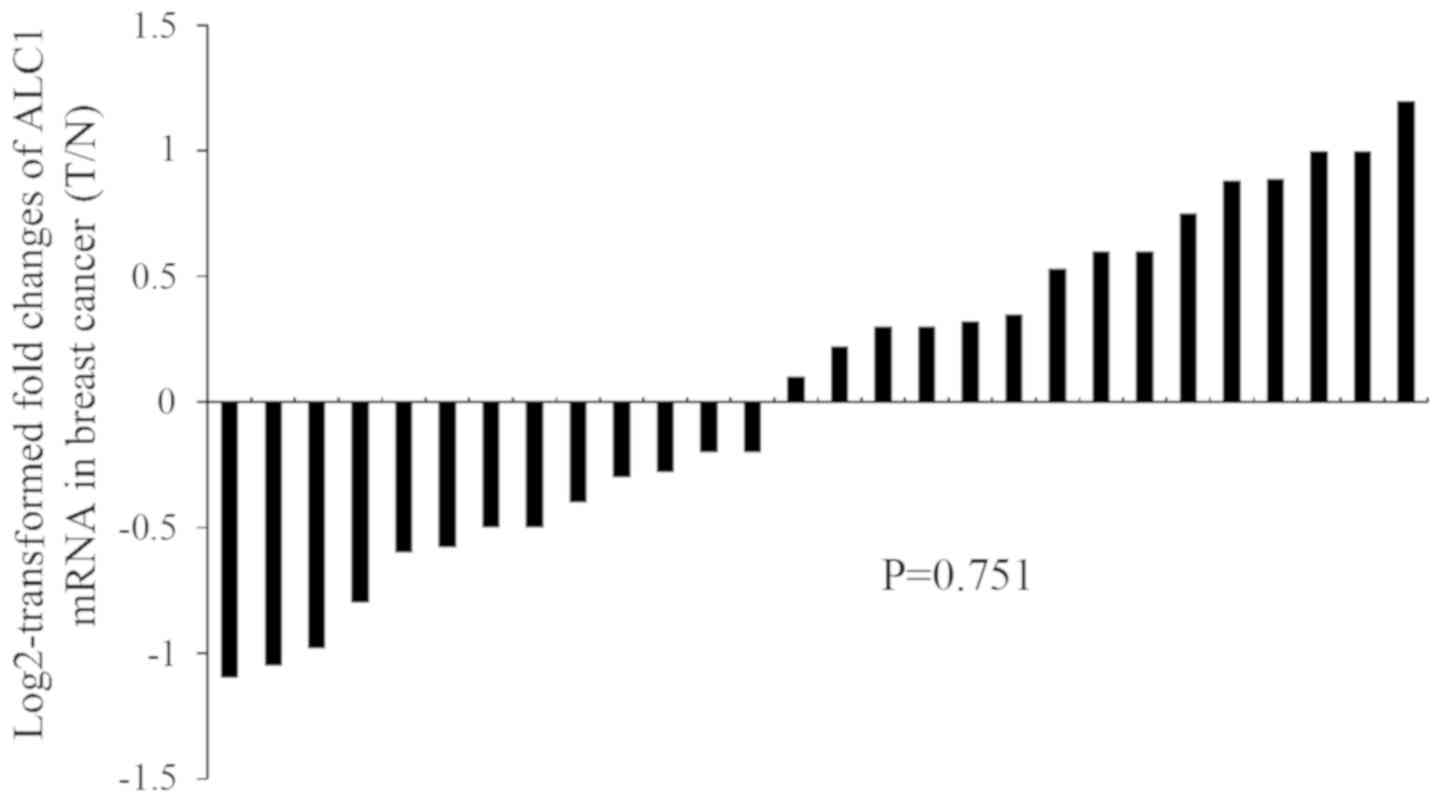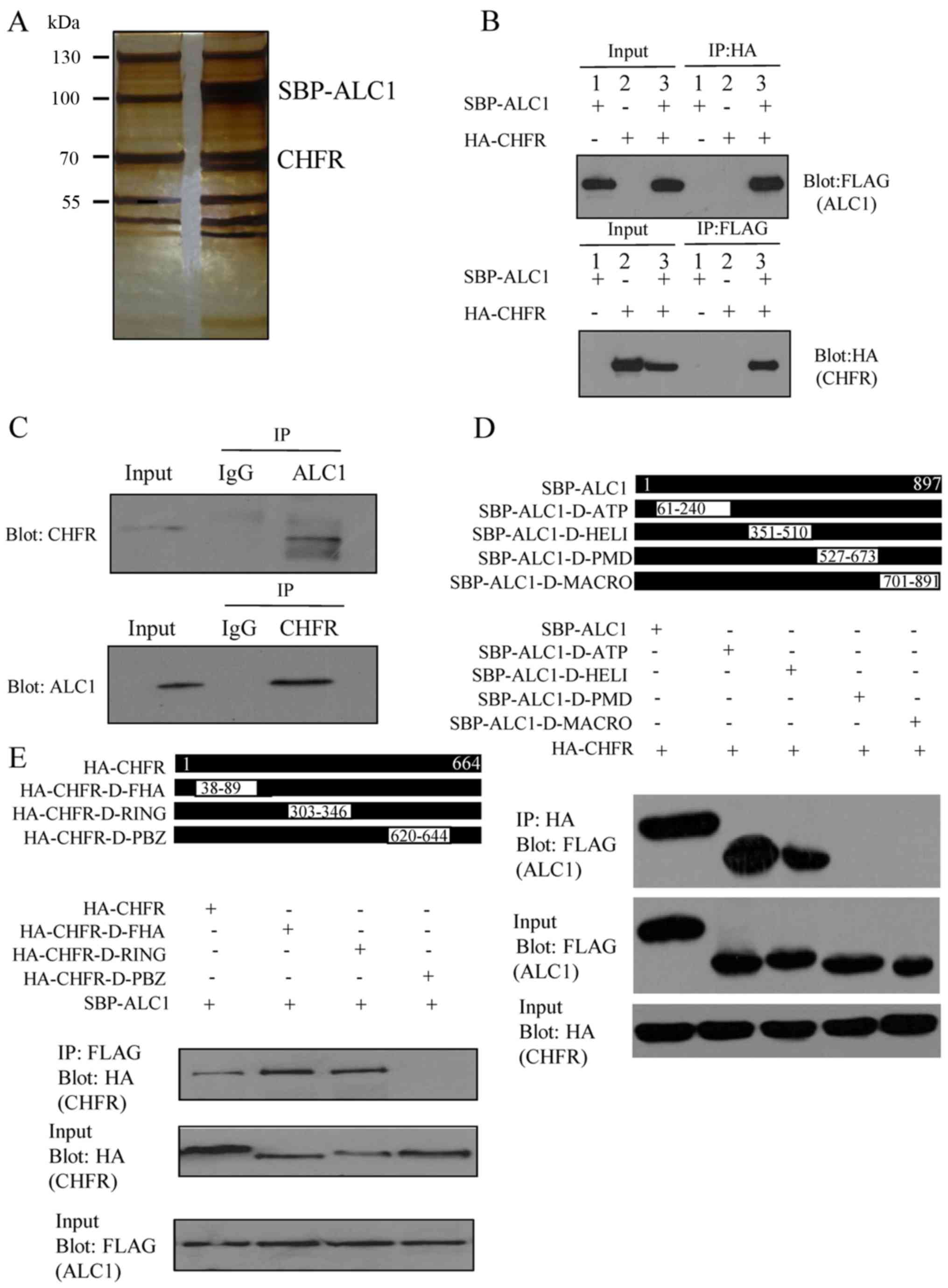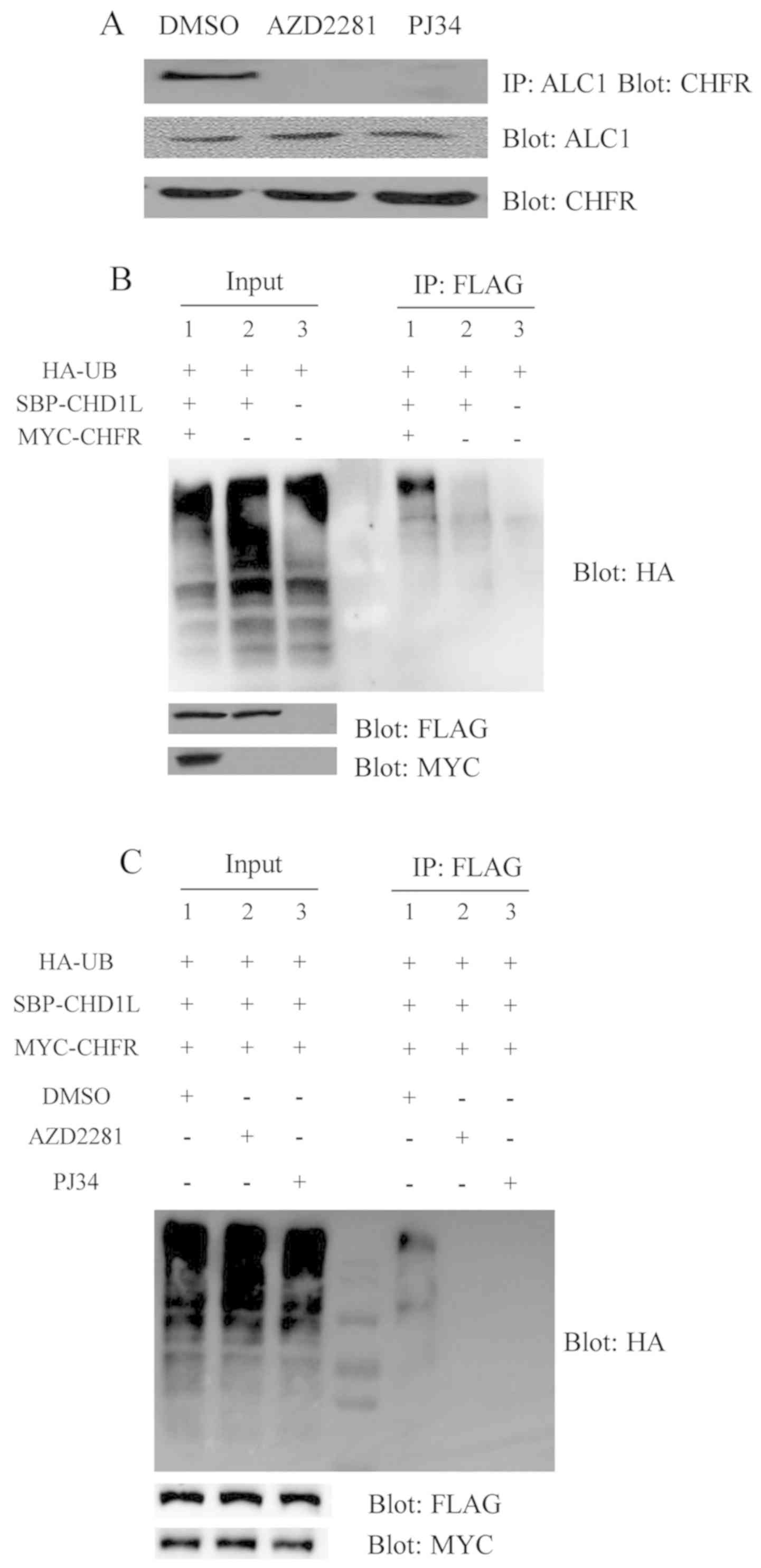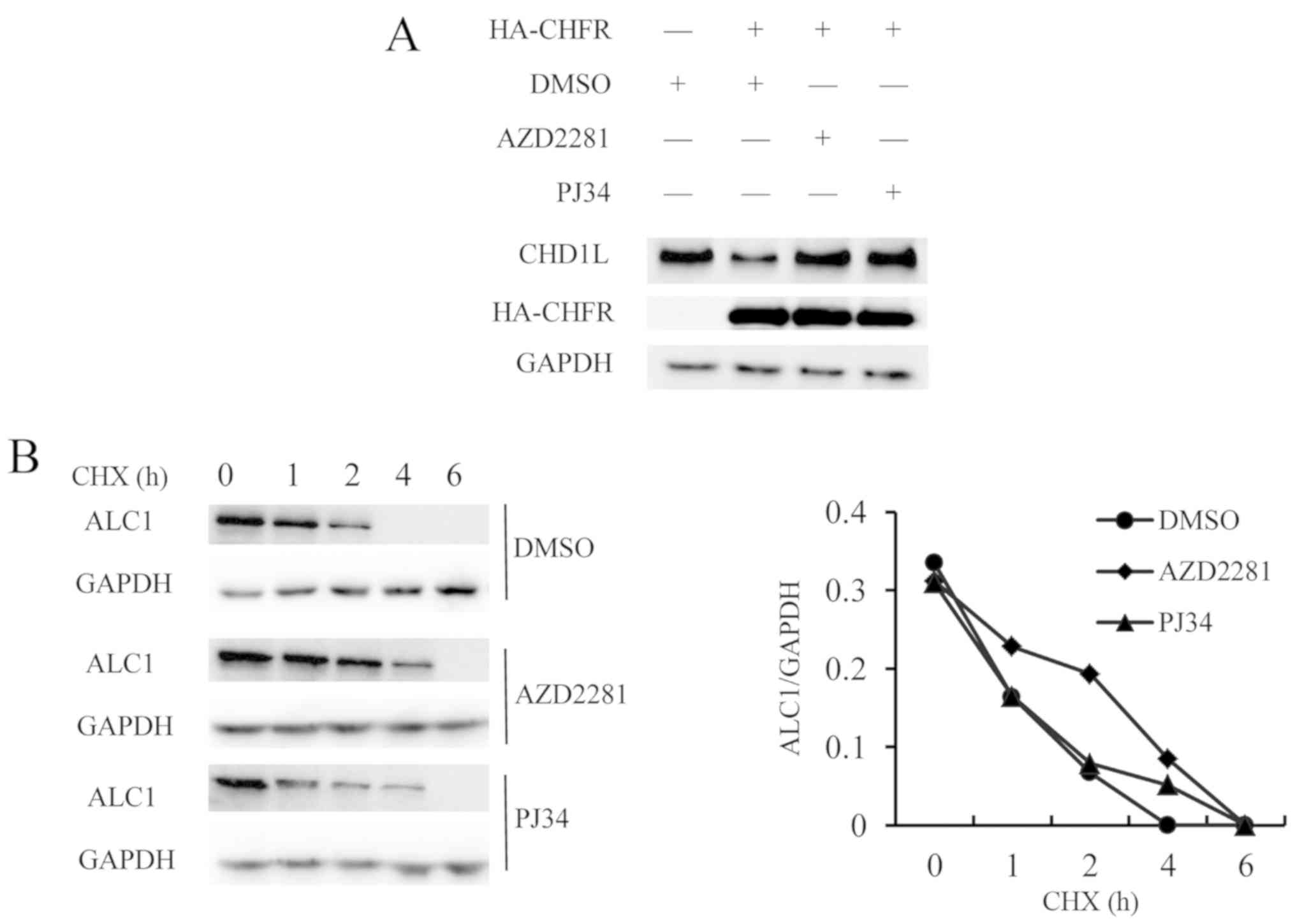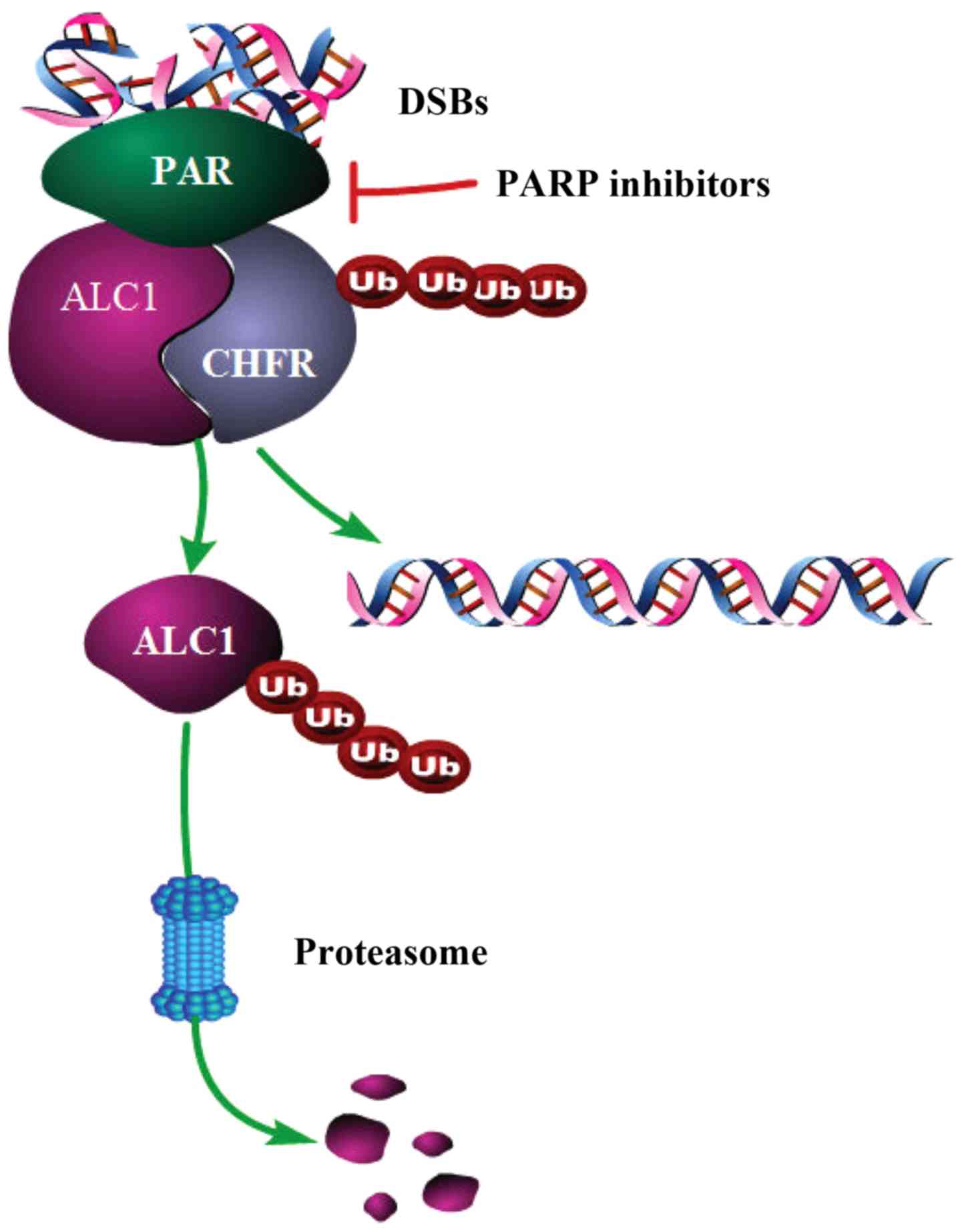|
1
|
Kolb AL, Gunn AR and Lakin ND: Redundancy
between nucleases required for homologous recombination promotes
PARP inhibitor resistance in the eukaryotic model organism
Dictyostelium. Nucleic Acids Res. 45:10056–10067. 2017. View Article : Google Scholar : PubMed/NCBI
|
|
2
|
Sie AS, Spruijt L, van Zelst-Stams WA,
Mensenkamp AR, Ligtenberg MJ, Brunner HG, Prins JB and Hoogerbrugge
N: High satisfaction and low distress in breast cancer patients one
year after BRCA-mutation testing without prior Face-to-Face genetic
counseling. J Genet Couns. 25:504–514. 2016. View Article : Google Scholar : PubMed/NCBI
|
|
3
|
Drew Y, Ledermann J, Hall G, Rea D,
Glasspool R, Highley M, Jayson G, Sludden J, Murray J, Jamieson D,
et al: Phase 2 multicentre trial investigating intermittent and
continuous dosing schedules of the poly(ADP-ribose) polymerase
inhibitor rucaparib in germline BRCA mutation carriers with
advanced ovarian and breast cancer. Br J Cancer. 114:723–730. 2016.
View Article : Google Scholar : PubMed/NCBI
|
|
4
|
Bryant HE, Schultz N, Thomas HD, Parker
KM, Flower D, Lopez E, Kyle S, Meuth M, Curtin NJ and Helleday T:
Specific killing of BRCA2-deficient tumours with inhibitors of
poly(ADP-ribose) polymerase. Nature. 434:913–917. 2005. View Article : Google Scholar : PubMed/NCBI
|
|
5
|
Kulkarni A, Oza J, Yao M, Sohail H,
Ginjala V, Tomas-Loba A, Horejsi Z, Tan AR, Boulton SJ and Ganesan
S: Tripartite Motif-containing 33 (TRIM33) protein functions in the
poly(ADP-ribose) polymerase (PARP)-dependent DNA damage response
through interaction with amplified in liver cancer 1 (ALC1)
protein. J Biol Chem. 288:32357–32369. 2013. View Article : Google Scholar : PubMed/NCBI
|
|
6
|
Rugo HS, Olopade OI, DeMichele A, Yau C,
van't Veer LJ, Buxton MB, Hogarth M, Hylton NM, Paoloni M,
Perlmutter J, et al: Adaptive randomization of
veliparib-carboplatin treatment in breast cancer. N Engl J Med.
375:23–34. 2016. View Article : Google Scholar : PubMed/NCBI
|
|
7
|
Mirza MR, Monk BJ, Herrstedt J, Oza AM,
Mahner S, Redondo A, Fabbro M, Ledermann JA, Lorusso D, Vergote I,
et al: Niraparib maintenance therapy in Platinum-sensitive,
recurrent ovarian cancer. N Engl J Med. 375:2154–2164. 2016.
View Article : Google Scholar : PubMed/NCBI
|
|
8
|
Sellou H, Lebeaupin T, Chapuis C, Smith R,
Hegele A, Singh HR, Kozlowski M, Bultmann S, Ladurner AG, Timinszky
G, et al: The poly(ADP-ribose)-dependent chromatin remodeler Alc1
induces local chromatin relaxation upon DNA damage. Mol Biol Cell.
27:3791–3799. 2016. View Article : Google Scholar : PubMed/NCBI
|
|
9
|
Ahel D, Horejsi Z, Wiechens N, Polo SE,
Garcia-Wilson E, Ahel I, Flynn H, Skehel M, West SC, Jackson SP, et
al: Poly(ADP-ribose)-dependent regulation of DNA repair by the
chromatin remodeling enzyme ALC1. Science. 325:1240–1243. 2009.
View Article : Google Scholar : PubMed/NCBI
|
|
10
|
Wu J, Zong Y, Fei X, Chen X, Huang O, He
J, Chen W, Li Y, Shen K and Zhu L: Presence of CHD1L
over-expression is associated with aggressive tumor biology and is
a novel prognostic biomarker for patient survival in human breast
cancer. PLoS One. 9:e986732014. View Article : Google Scholar : PubMed/NCBI
|
|
11
|
Xu X, He Y, Miao X, Wu Y, Han J, Wang Q,
Liu J, Zhong F, Ou Y, Wang Y and He S: Cell adhesion induces
overexpression of chromodomain helicase/ATPase DNA binding protein
1-like gene (CHD1L) and contributes to cell adhesion-mediated drug
resistance (CAM-DR) in multiple myeloma cells. Leuk Res. 47:54–62.
2016. View Article : Google Scholar : PubMed/NCBI
|
|
12
|
He LR, Ma NF, Chen JW, Li BK, Guan XY, Liu
MZ and Xie D: Overexpression of CHD1L is positively associated with
metastasis of lung adenocarcinoma and predicts patients poor
survival. Oncotarget. 6:31181–31190. 2015. View Article : Google Scholar : PubMed/NCBI
|
|
13
|
Mu QJ, Li HL, Yao Y, Liu SC, Yin CG and Ma
XZ: Chromodomain Helicase/ATPase DNA-binding protein 1-Like Gene
(CHD1L) expression and implications for invasion and metastasis of
breast cancer. PLoS One. 10:e01430302015. View Article : Google Scholar : PubMed/NCBI
|
|
14
|
Tsuda M, Cho K, Ooka M, Shimizu N,
Watanabe R, Yasui A, Nakazawa Y, Ogi T, Harada H, Agama K, et al:
ALC1/CHD1L, a chromatin-remodeling enzyme, is required for
efficient base excision repair. PLoS One. 12:e01883202017.
View Article : Google Scholar : PubMed/NCBI
|
|
15
|
Jiang BH, Chen WY, Li HY, Chien Y, Chang
WC, Hsieh PC, Wu P, Chen CY, Song HY, Chien CS, et al: CHD1L
regulated PARP1-driven pluripotency and chromatin remodeling during
the early-stage cell reprogramming. Stem Cells. 33:2961–2972. 2015.
View Article : Google Scholar : PubMed/NCBI
|
|
16
|
Lehmann LC, Hewitt G, Aibara S, Leitner A,
Marklund E, Maslen SL, Maturi V, Chen Y, van der Spoel D, Skehel
JM, et al: Mechanistic insights into autoinhibition of the
oncogenic chromatin remodeler ALC1. Mol Cell. 68:847–859.e7. 2017.
View Article : Google Scholar : PubMed/NCBI
|
|
17
|
Sun Z, Liu J, Jing H, Dong SX and Wu J:
The diagnostic and prognostic value of CHFR hypermethylation in
colorectal cancer, a meta-analysis and literature review.
Oncotarget. 8:89142–89148. 2017.PubMed/NCBI
|
|
18
|
Privette LM, Gonzalez ME, Ding L, Kleer CG
and Petty EM: Altered expression of the early mitotic checkpoint
protein, CHFR, in breast cancers: Implications for tumor
suppression. Cancer Res. 67:6064–6074. 2007. View Article : Google Scholar : PubMed/NCBI
|
|
19
|
Kashima L, Idogawa M, Mita H, Shitashige
M, Yamada T, Ogi K, Suzuki H, Toyota M, Ariga H, Sasaki Y and
Tokino T: CHFR protein regulates mitotic checkpoint by targeting
PARP-1 protein for ubiquitination and degradation. J Biol Chem.
287:12975–12984. 2012. View Article : Google Scholar : PubMed/NCBI
|
|
20
|
Brodie SA, Li G, Donald H, Khuri FR,
Vertino PM and Brandes JC: Small molecule inhibition of the
CHFR-PARP1 interaction as novel approach to overcome intrinsic
taxane resistance in cancer. Oncotarget. 6:30773–30786. 2015.
View Article : Google Scholar : PubMed/NCBI
|
|
21
|
Lim JS and Tan DS: Understanding
resistance mechanisms and expanding the therapeutic utility of PARP
inhibitors. Cancers (Basel). 9:E1092017. View Article : Google Scholar : PubMed/NCBI
|
|
22
|
Luijsterburg MS, de Krijger I, Wiegant WW,
Shah RG, Smeenk G, de Groot AJ, Pines A, Vertegaal AC, Jacobs JJ,
Shah GM and van Attikum H: PARP1 Links CHD2-mediated chromatin
expansion and H3.3 deposition to DNA Repair by Non-homologous
End-Joining. Molecular Cell. 61:547–562. 2016. View Article : Google Scholar : PubMed/NCBI
|
|
23
|
Rajawat J, Shukla N and Mishra DP:
Therapeutic targeting of Poly(ADP-Ribose) Polymerase-1 (PARP1) in
cancer: Current developments, therapeutic strategies, and future
opportunities. Med Res Rev. 37:1461–1491. 2017. View Article : Google Scholar : PubMed/NCBI
|
|
24
|
Barber LJ, Sandhu S, Chen L, Campbell J,
Kozarewa I, Fenwick K, Assiotis I, Rodrigues DN, Reis Filho JS,
Moreno V, et al: Secondary mutations in BRCA2 associated with
clinical resistance to a PARP inhibitor. J Pathol. 229:422–429.
2013. View Article : Google Scholar : PubMed/NCBI
|
|
25
|
Wang YT, Yuan B, Chen HD, Xu L, Tian YN,
Zhang A, He JX and Miao ZH: Acquired resistance of PTEN-deficient
cells to PARP inhibitor and Ara-C mediated by 53BP1 loss and SAMHD1
overexpression. Cancer Sci. 109:821–831. 2018. View Article : Google Scholar : PubMed/NCBI
|
|
26
|
Singh HR, Nardozza AP, Möller IR, Knobloch
G, Kistemaker HA, Hassler M, Harrer N, Blessing C, Eustermann S,
Kotthoff C, et al: A Poly-ADP-Ribose trigger releases the
Auto-inhibition of a chromatin remodeling oncogene. Mol Cell.
68:860–871.e7. 2017. View Article : Google Scholar : PubMed/NCBI
|
|
27
|
Kim M, Kwon YE, Song JO, Bae SJ and Seol
JH: CHFR negatively regulates SIRT1 activity upon oxidative stress.
Sci Rep. 6:375782016. View Article : Google Scholar : PubMed/NCBI
|















